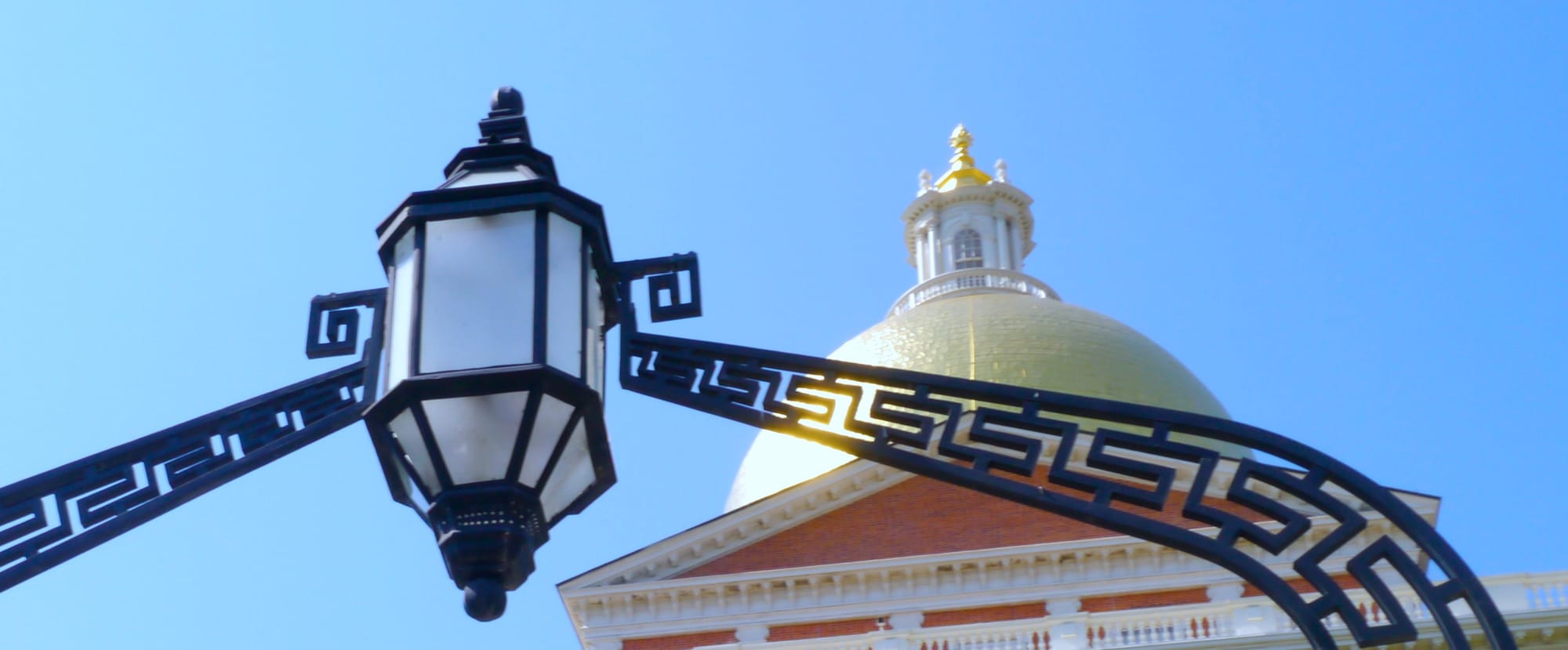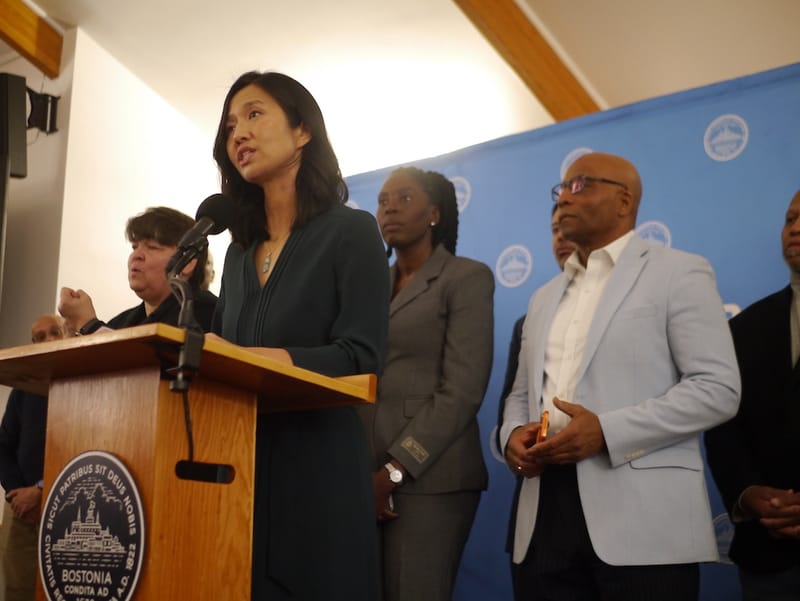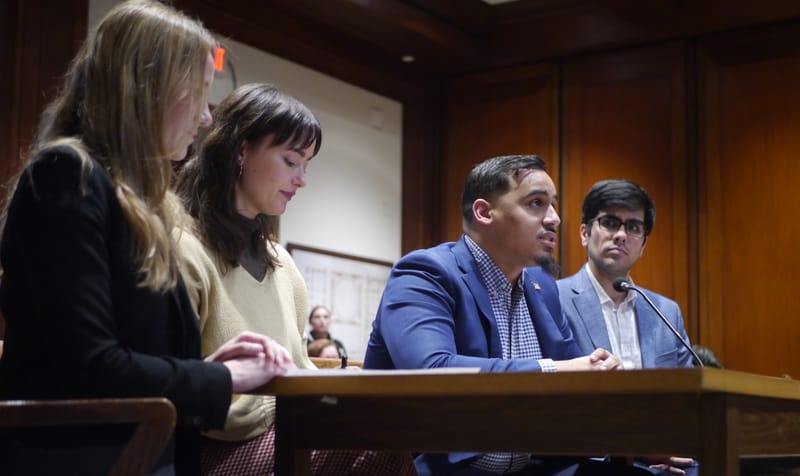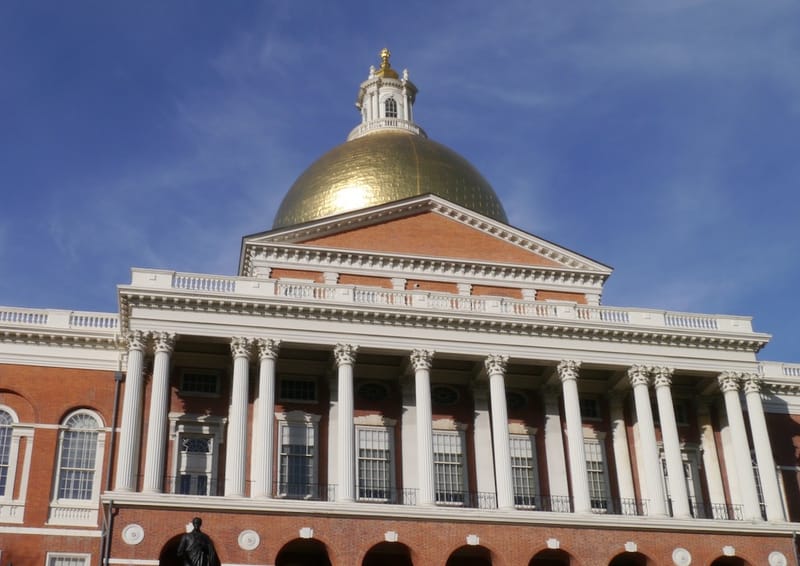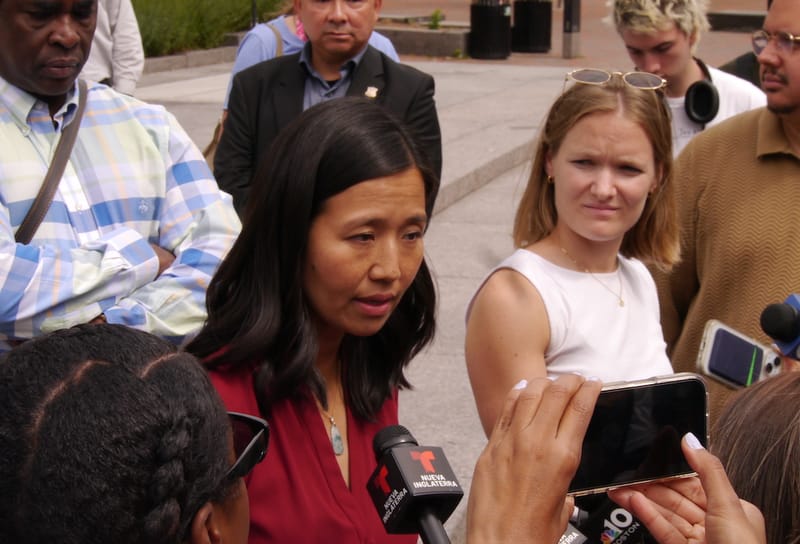Pioneer Institute: tax cut may not have any effect on revenue
In a report released last week, the Pioneer Institute asserts that its ballot question cutting the state income tax rate may have little to no effect on state revenue.
A ballot question backed by the Pioneer Institute and Mass High Tech Council would reduce the state income tax rate from 5% to 4% over a three-year period — a cut, opponents say, that would cut income tax revenue by 20%, leading to a $5 billion reduction in state revenue.
But in a report released last week, the Pioneer Institute asserts that the revenue losses from such a cut would be minimal.
“Critics of the tax proposal are once again trotting out the same simplistic doomsday analysis they did when a proposal to cut the state income tax rate was last on the ballot in 2000,” said Jim Stergios, Pioneer’s executive director in a statement.
“The evidence is clear: a one-percentage-point income tax cut implemented over three years did not cause a dramatic fall in revenues then, and it won’t now.”
According to the institute’s analysis, after an initial drop of $530 million when the rate income tax rate dropped from 5.95% to 5.6%, revenues stabilized and increased.
“There was no evidence of rate-driven declines across all subsequent years,” reads a summary of the report. “When rate reductions occurred, year-over-year personal-income-tax (PIT) revenues were stable or positive.”
Legislators also revised the mandate in 2002, requiring that the tax rate stay frozen at 5.3% until the state’s revenues saw four consecutive quarters of growth. It wasn’t until 2019 that the rate dropped to 5%.
“So, lo and behold, the things that could only happen during good revenue times did only happen in good revenue times,” said Phineas Baxandall, director of research and policy at the Massachusetts Budget and Policy Center.
Lawmakers also increased the capital gains tax during that time, further blunting the impact of lost income tax revenue, Baxandall said, noting that those developments weren’t mentioned in the Pioneer report.
But neither the increased revenue from capital gains nor the slowing of the tax cut were enough to help the state weather the crash of 2008 and the following Great Recession, Baxandall said.
“There were deep cuts,” he said. “And if the Commonwealth had had more money, there would not have been such deep cuts. It wouldn’t have been so much pain and lack of investment in that Great Recession.”
A 2010 Massachusetts Budget and Policy Center analysis found that tax cuts contributed to more than $3 billion in lost revenue during the recession.
Baxandall and Stergios both acknowledge that there’s no way of knowing exactly how the cut proposed in the ballot question would affect revenues. Stergios said his analysis is simply drawing off the history of the 2000 ballot question.
“We’ve done this before,” he said. “At that time, there were people screaming from the rooftops. I just want to say to folks, ‘Take a chill pill.’”
Stergios cites a poll by the Mass Opportunity Alliance, a group founded by the Pioneer Institute, the Massachusetts High Technology Council, and other business friendly groups, that found 82% of Massachusetts residents of respondents agreed their taxes were too high.
“State government has been growing its revenue base far faster than people’s personal income has grown,” he said.
Baxandall, however, said there’s no question tax cuts will lead to loss of revenue.
“The smoke-and-mirrors kind of history doesn’t change the basic mathematical fact that tax rates are proportional to tax revenues,” he said. “That’s just basic math. And that can’t be avoided with kind of these sort of one-sided histories.”
In addition to the ballot question cutting the tax rate, the Massachusetts High Technology Council is pushing a question that would refund state income tax payers when state revenue growth is greater than the rate at which wages and salaries have grown over the previous three years.
Opponents of that bill estimate that it would cut as much as $2 billion from the state budget. Together with the income tax reduction ballot question, the ballot questions could trim as much as $7 billion — or 12% — from the state budget.
The tax cut ballot questions advanced by the Pioneer Institute and the Mass High Tech Council come against a backdrop of fiscal uncertainty from a federal government that has slashed social safety net programs such as the Supplemental Nutritional Assistance Program and an estimated $3.7 billion in federal funding that has gone directly to the state budget for Health and Human Services, transportation, education and other areas.
The Trump administration’s tariff regime and the effects of retaliatory tariffs on US exports have some economist fearing the US may be heading for a recession. In May, Trump acknowledged the possibility, referring to coming economic upheavals as a “transition period.”
Are Massachusetts taxes too high?
The website WalletHub ranks Massachusetts 29th out of the 50 states and the District of Columbia for annual state and local taxes on its median income — showing state residents paying slightly more in taxes on property, income and state and federal taxes than the US median.
This is partly because Massachusetts residents consistently rank higher than other states in income earned. In 2023, the median household income in the state was $99,858, second only to Washington D.C.
Because the federal income tax is graduated — meaning the more people earn, the higher the rate at which they are taxed — the median Massachusetts resident pays a higher rate on federal taxes than the median income earners in the other, lower-earning states. But the state is one of 13 in the US that have a flat income tax rate. Massachusetts residents pay 5%, regardless of their income.
State taxes pay for public infrastructure, K-12 and public higher education, social safety net programs, and other priorities that contribute to the quality of life for residents. With higher-than average rates of public investment, the state’s K-12 schools consistently rank among the top in the country.
The Massachusetts Opportunity Alliance poll found that 41% of state residents ranked quality of life in Massachusetts between 8 and 10 on a scale of 1-10, with 10 being the highest. The majority of respondents ranked quality of life in the state between 4 and 7. Additionally, 54% of respondents said the state is “headed in the right direction.”
Respondents to the Massachusetts Opportunity Council’s polling cited the high cost of living in Massachusetts, driven in a large part by the state’s high cost of housing and rents, as a factor for why they think people are leaving the state.
This article was originally published in the Dorchester Reporter.


